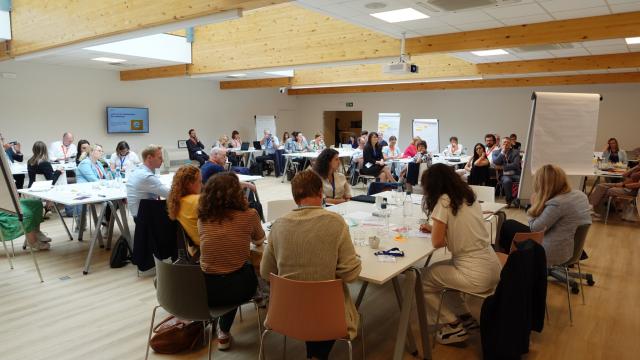The Recovery and Resilience Facility supports the promotion of digital skills

As Europe sets off on its path to recovery, the need to improve and adapt digital skills becomes imperative. In this context, the Recovery and Resilience Facility (RFF) is a unique opportunity for EU countries to boost digital skills and collectively meet the digital decade targets for 2030. This financial instrument entered into force on 19 February 2021 and will provide over €670 billion in loans and grants to support reforms and investments in all EU countries.
To receive support from the RFF, EU Member states had to prepare and submit their national recovery and resilience plans that set out a coherent package of reforms and public investment projects with long-lasting impact. The reforms and investments should be implemented by 2026.
At least 20% of the budget of each national plan must be allocated to the digital transformation of the economy and society. This includes reforms promoting and boosting digital skills.
These are some examples of how digital skills challenges could be addressed in the national plans:
- Develop and update modules and curricula for digital skills in primary and secondary education;
- Invest in workforce training opportunities through inter-company training centres;
- Establish a national programme of apprenticeships in ICT, including in small and medium-sized enterprises (SMEs);
- Increase the offer of university programmes in advanced technologies such as Artificial Intelligence (AI), cybersecurity or quantum computing;
- Foster digital skills of teachers and trainers and create digital pedagogical content;
- Empower Digital Innovation Hubs (DIHs) to provide training and skills development for the successful digital transformation of companies.
- Invest in digital equipment to support the provision of digital learning and skills in schools, vocational education and training (VET) and higher education institutions.
- Foster closer cooperation between companies, Centres of Vocational Excellence (CoVEs), and universities.
Overall, the national recovery plans are essential instruments that will ensure a large diffusion of digital skills in the European population, at all levels.
When the Council adopts the national plans, the Digital Skills and Jobs Platform will present an overview of actions, reforms and investments that the EU Member states commit to.
© Andrey Popov - stock.adobe.com




